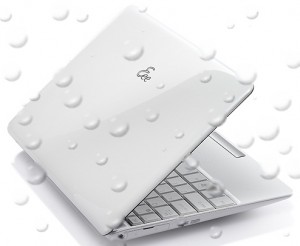Psion of things to come – technology’s curse
Christian Nielsen's long-dead Psion Organiser is a constant reminder never to buy any technology that promises to help him remember things.
9 July 2009

“It's dead!” I shouted down the stairs to my wife. We didn't have any animals and keep a relatively rodent-and insect-free house, so she really had no idea what had bit the dust in my attic turned office.
“My Psion is no more!” I felt like proclaiming to the uncaring streets. The small keypad-like organiser-cum-still-born microcomputer was my entrée to the world of handhelds, of people in fashionable suits travelling to important places.
Of course, I knew these elite people mostly had Palm thingies that could do some amazing (in the late 1990s sense of the word) stuff, like emailing on the move and sending documents which would magically appear on the other side of the world, but I had to be different, dare I say “special”.
As a journalist, words were my thing. Lots of them. I hated the idea of carrying round kilos of dead weight in the form of a so-called laptop for an overnight job. I hated even more the stupid function of ‘penning-in' (if that's the right expression) each letter to form words. I went for the light but what I thought to be future-proof option. And the Psion did more than I could have hoped. Not only did it create copy on the go, but it faithfully served as a secretary as well.
I spent untold hours tapping in all my personal data, agenda items and contacts. I even learnt – alas only after many days of manual inputting – how to synchronise the little dynamo with my desktop. Of course, I left the cable Psion provided for doing this in a hotel somewhere and it just seemed easier to keep all the data in the handheld. A crucial mistake.
One day, I got talking with my brother-in-law, the technology ‘go to' guy, about the electronic tools we both ministered over. As people scurried here and there to their departure lounges, he said almost casually that he feared with the Psion that I would end up with an electronic whore that refuses to put out. I laughed, but the remark stung a little. I mean, this is a guy that always carried the latest gizmos, had the right mobile contracts to make them work, and he usually even knew how to use the bloody things!
I asked what he meant by that. He told me the Canadian company that made Psions had big ideas, but wondered if it would survive the handheld wars long enough to put them into practice. He had heard that the company was working on something they were calling a netbook and that it promised to be the mini-computing format I was after but somehow connected ‘wirelessly' as well.
“So I'd always get what I wanted out of my whore,” I mused. It all sounded so exciting… but surely improbable.
His flight to Stockholm was soon departing. Pocketing – only just – his first-generation Nokia Communicator, he headed towards the first-class lounge. I waved goodbye with my trusty Psion held high – or so I recalled – as I sloped off with the rest of the economy passengers to my Brussels flight. When I got home, my Psion was nowhere to be found.
Gatwick airport authorities returned it to me a week later, or what was left of it!
A few years – and a couple of mobile gadget generations – passed and my brother-in-law had something new up his tailored sleeve, something he called his Black Book. It sounded exotic and, no doubt, cutting edge. Flushed with envy, I begged him for a feel. He showed it to me, discreetly but with an air of nonchalance that you would expect a seasoned technophile to bear.
And how glorious it was. So compact and light – fitting quite naturally into his palm – yet sturdy and reliable looking. He opened it, pulled out a low-tech pen and wrote my new mobile phone number on one of the blank pages. Again, I had learnt from the master. And, yes, I had lost another mobile phone – my contacts and dreams of mastering technology along with it.
Would technology's curse ever leave my side?
What cleverness comes
Skip forward nearly a decade and it is looking like Psion knew something no-one else did. Ipso facto does that mean my relationship with technology has been more visionary than visceral all these years? Maybe.
Today, as I tap cleverly into my ASUS Eee PC, the frontrunner of the ultralite computers now taking the world by storm, I feel like I might just be welcome in the first-class lounge. And the ultralite computing sensation, the netbook, was Psion's parting gift, to a hell of a lot of us, apparently.
Netbook sales have skyrocketed from 400,000 in 2007 to 11.4 million in 2008 – the lion's share apparently gobbled up by Europeans. This trend looks set to continue in 2009, with predicted sales of 35 million (ABI Research), growing to as much as 139 million by 2013. This phenomenal growth is being driven by a parallel rise in web-based applications and mobile networking.
What does it mean to me?
The Psion I display in my office is no longer the stain it once was. It has transmogrified into a magnificent birthmark, a discrete sign worn by those in the know. All who bear this mark know and understand that it's not size that matters, but where you put it – the data, that is. And for this, the ultralites head for the clouds, where you beg, borrow or steal unused computing power all fed to your little package through the world wonderful web.
It doesn't matter that these netbooks have no CD-ROM drive, because anything you want to watch, save, find or play is on the web anyway. I'm sure it's what Psion had in mind. I'm sure I knew that, too.
This article is published with the author's permission. © Copyright – Christian Nielsen. All rights reserved.



interesting to know it’s not necessaily age that determines comfort with technology:
http://www.guardian.co.uk/media/pda/2009/jul/14/twitter-teens-facebook
Declan,
Telex will come back when the ‘big one’ hits. Mark my words.
Sorry, forgot link to the Model-T info…
http://www.popularmechanics.com/blogs/automotive_news/4284722.html
Davo,
Certainly get your point, but reading up on the Model-T I learnt a thing or two about its brakes. Not too good, apparently. Brakes were a problem in all car models for yars, and most likely the biggest problem for early race cars (and maybe current ones too). On the Model-T, found an interesting piece at:
Of note:
“One hundred years ago, average Americans and early auto engineers alike praised the Model T for its ease of operation. But compared to a modern car, this thing’s a nightmare. Down low are three foot pedals, which seems simple enough, but get this: The right pedal isn’t the gas, it’s the brake. Pressing the center pedal engages reverse, and the left shifts the gear ratios—in for low gear, out for high and neutral somewhere in between…”
It takes time to get stuff right, apparently. The ‘Black Book’ still seems like the best option.
(-:
I’m with you Davo on the need for working basics
Even the humble mobile phone is getting sillier by the day, my latest phone (Nokia E51.. so neither new nor particularly fancy) is far harder to navigate than my older clumpier models.
It’s not just down to my age and inability to adapt to new technology (I’m on twitter.. what more do you want?) but basic functionality is slipping down the agenda (Apple being the exception so the very pricey iPhone may be the only answer).
The old phone required one simple button push to start texting whereas the new one requires you to navigate two menus before reaching the texting option.
I’m aware that I can customise and programme the phone to meet my needs after but I shouldn’t bloody well have to.. texting is hardly a minority sport in the world of smart phones?
Apologies for digressing from the original subject.. regarding the Psion.. I’ve far too young for that sort of thing, were they before or after the telex machine?
Nice insights.
Forgive me for being prosaic but putting reasonable battery life in these things might help justify their “portable” tag. Or is it just me and my Acer?
Love technology and what it can help you do, but sometimes feel they’re running before they can walk. Plenty of fancy features but scant attention to basic stuff like operability – and then you’re on your own and really need to be some sort of tech genius to figure things out. Which not all of us are.
Surely they didn’t start selling Model-T Fords without properly working brakes and steering wheels, at the dawn of the motor car era? And then expect all owners to be fully-qualified car mechanics when their car broke down…
oops, bit of a rant there, back to work on my humble desktop…
Henrik, I can’t fix that for you. But I’d be happy to meet in 20 years to compare scars — under which all our technology will be embedded! Ambient baby.
Heads-up displays. Not there yet, but who knows?
http://en.wikipedia.org/wiki/Head-up_display
What a great exposé and fascinating story! But have we really arrived at the final station – the end of tech history – where the netbook has conquered the world? Save the article in a safe place (not the web) and we’ll discuss it year 2020. The web will surely survive but what if we’d laugh at today’s gadgets because in a decade we realise that we do not want to stare at a bright screen. We want the light coming from behind, like when reading a physical book with a lamp behind you. Can someone please fix that!